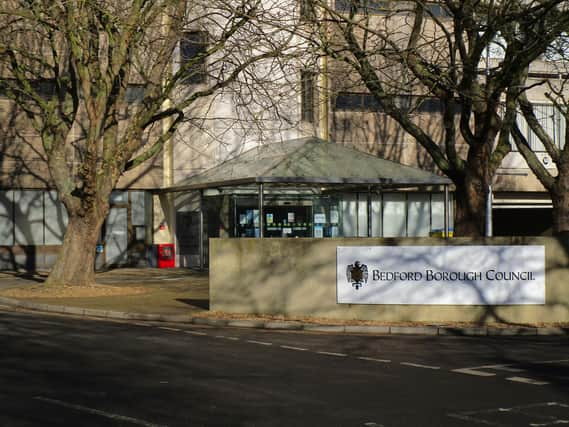Bedford council hits back at Government concerns traffic fines are used to raise extra cash


The Government is concerned that some councils are using traffic fines to raise revenue – but Bedford Borough Council said these fines are to encourage safety.
The Secretary of State for Transport launched the “Plan for Drivers” in March to “address concerns, including councils generating surpluses from issuing penalty charge notices (PCNs) for contraventions of moving traffic restrictions”.
Advertisement
Advertisement
In the foreword, the transport secretary, Mark Harper, wrote: “Councils have powers to enforce traffic regulations in order to ensure that our roads are safe for all users and that people can move about without undue interference.
“They are not an alternative way for local councillors to raise taxes, or decide who gets to travel where.”
“Should Government [sic] remove any suggestion there is a “profit motive” for local councils – such as by requiring any surpluses that councils might generate from new charges to be repaid to His Majesty’s Treasury – after the costs of enforcement have been repaid?” he asked.
A Bedford Borough Council spokesperson said: “We are responding to the consultation on surplus generation and were disappointed to read some of the rhetoric around ‘unfairly penalising motorists’.
Advertisement
Advertisement
“The aim of enforcement, via either our civil enforcement officers’ issuing fixed penalty notices or through the introduction of moving traffic enforcement, is to encourage all users of our footways and carriageways to do so as safely and efficiently as possible.
“Current surpluses are generated within existing government guidelines as per the Local Authorities Act 2003,” they said.
In June 2022, the borough council was granted the powers to enforce certain traffic offences, such as no right turns, U-turns, no-vehicle entry points, and stopping in yellow boxes at junctions.
The spokesperson added: “We continue to investigate the viability of introducing moving traffic enforcement and as part of this are considering potential changes to surplus generation, along with the ability of the authority to retain it.
Advertisement
Advertisement
“Each set of cameras is estimated to cost between £15k and 20k, with an annual maintenance cost of between £3k to £5k.
“Our ability to both cover the capital and revenue costs of this equipment and to reinvest in our transport system may have a bearing on the decision to introduce moving traffic enforcement in Bedford borough,” they said.
Visit the Government’s website for more information on the “Open call for evidence: Restricting the generation of surplus funds from traffic contraventions”.